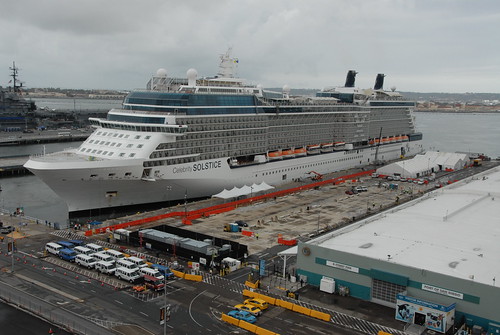 “Not another one?” We’ve all had that thought recently. That’s because over the last couple of years, news reports of cruise ship disasters have occurred with greater frequency than in the past. With threats of terrorist attacks, running aground, on board fires, and viral outbreaks, should passengers be concerned about their safety on a commercial vessel? Do cruise ship crew members fully comprehend the magnitude of the risk they take with every launch? Do these workers realize they could be at risk of injury or of being involved in a catastrophic event at sea?
“Not another one?” We’ve all had that thought recently. That’s because over the last couple of years, news reports of cruise ship disasters have occurred with greater frequency than in the past. With threats of terrorist attacks, running aground, on board fires, and viral outbreaks, should passengers be concerned about their safety on a commercial vessel? Do cruise ship crew members fully comprehend the magnitude of the risk they take with every launch? Do these workers realize they could be at risk of injury or of being involved in a catastrophic event at sea?
Mechanical Malfunctions
When you embark on a cruise vacation, as a passenger or crewman, you should be able to assume that the ship is in tip-top condition. You trust that, as with airplane maintenance, ships are also carefully inspected, repaired, and tested before anyone is allowed on board. However, over the last several years, considering the number of engine malfunctions, power outages, propulsion problems, and climate control issues that have occurred, passengers and crew members alike have had harrowing experiences at sea.
Hundreds have suffered the deprivation of subsisting without plumbing, fresh food, clean water, and being stranded in port for hours at a time. Although these “memorable experiences” may make exciting tales to tell grandchildren later, they’re hardly the stuff of which dream jobs and vacations are made.
For vacationers, such trips are usually once-in-a-lifetime adventures. For workers, however, these trips and their potential risks are a daily reality. Crew members should be aware that should they be injured on the job, they are protected by The Jones Act, or the Merchant Seaman Protection and Relief Act, about which they can learn more at http://www.doyleraizner.com/jones-act-claims.
Being armed with this knowledge may make for calmer waters emotionally and financially for each of them.
Injuries and Illnesses
In recent reports, injuries at sea have been minimal, but reported illness has been more prevalent. Gastrointestinal illness is the most common of cruise ship health issues. Particularly, recent norovirus outbreaks have prompted some ships to enforce stricter rules for both crew members and passengers in the hopes of minimizing the risk of spreading the virus through human contact. They are now requiring the use of hand sanitizer before entering dining areas, and quarantining patients and crewmen who do become sick.
 Running Aground and Collisions
Running Aground and Collisions
Also in the news lately are reported collisions and ships running aground all over the world. These types of incidents are often deadly to everyone on board, especially when an emergency evacuation takes place. In some cases, passengers become so terrified of being on a sinking ship, they’ve hastily grabbed life jackets and jumped into the water. This act can be dangerous and result in tragedy. Ocean waters are frigid and fraught with countless other dangers.
Pirate Attacks
Thought of as something out of ancient history, pirate attacks, although rare, do occur even in modern times. In 2009, pirates attacked a cruise ship off the coast of South Africa and fired at the ship, which was carrying 1,000 passengers and 500 crewmen. The ship’s security crew fired back, keeping the pirates at bay until the Coast Guard and Spanish Navy came to their rescue.
Although these risks are not daily occurrences, they are very real, and do happen more often than they should. If you are considering taking a cruise, do some research first. Find out which cruise lines have the best safety records, which ones require the most precautionary measures, and which have the least mechanical malfunctions in the course of a year. If you work on a cruise ship, be sure you know your rights at sea, as well as the condition of the ship upon which you’ll live and work. Then, you can rest assured you will come back from your trip with experiences you want to remember for years to come.
Writer and land-lubber LaGeris Underwood Bell bids a “bon voyage” to all hail and hearty ocean adventurers who, whether at work or at play, dare to brave the choppy waves of the sea. She hopes this article will provide insights into some of the potential risks and reimbursements in this amazing environment.













